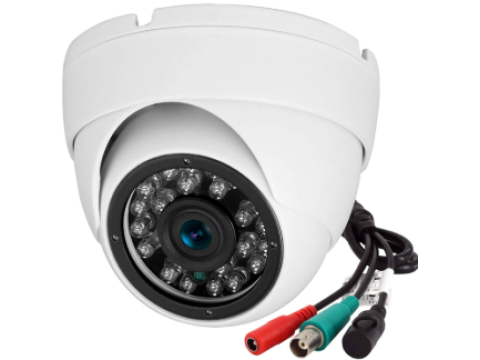Analog Surveillance Cameras: Features, HD Technology, and Selection
Analog surveillance cameras remain a popular choice for security systems, offering reliability, simplicity, and cost-effectiveness. These cameras are equipped with CCD (Charge-Coupled Device) sensors to convert light into electrical signals, delivering smooth video at 25 frames per second.
Advantages of Analog Cameras
- Ease of Installation: Requires minimal setup with a coaxial cable and BNC connectors.
- Cost-Effectiveness: Ideal for budget-conscious users, especially in homes or small businesses.
- Reliability: Proven technology with stable performance in various conditions.
HD Analog Cameras: A Revolution in Clarity
Advancements in HD technology have elevated analog cameras to deliver high-resolution video comparable to IP systems. Key HD standards include:
1. HDCVI (High Definition Composite Video Interface)
- Transmits video, audio, and control signals over a single coaxial cable.
- Effective for long-distance connections with minimal distortion.
2. HDTVI (High Definition Transport Video Interface)
- Supports signal transmission up to 500 meters over quality coaxial cables.
- Backward compatibility with traditional analog cameras for hybrid systems.
3. AHD (Analog High Definition)
- Delivers resolutions of 720p to 1080p (Full HD).
- Compatible with standard DVRs and allows seamless system upgrades.
These technologies enable analog systems to achieve megapixel resolutions, providing clear and detailed footage while maintaining lower costs than IP-based systems.
How to Choose an Analog Camera
Key Factors to Consider
Installation Location:
- Indoor Cameras: Compact and aesthetically designed for home or office use.
- Outdoor Cameras: Require weatherproofing (IP66 or higher) and vandal-resistant housing.
Resolution:
- Entry-level models: 500-600 TVL (TV Lines) for general surveillance.
- High-resolution options: AHD cameras with 1-2 megapixels, suitable for detail-oriented tasks.
Field of View:
- Determined by the lens’s focal length. Wide-angle lenses capture more area, while narrow lenses focus on details.
Additional Features:
- Automatic Iris Adjustment: Adapts to varying light conditions.
- Backlight Compensation (BLC): Enhances visibility against bright backgrounds.
- Infrared (IR) Support: Essential for low-light or nighttime monitoring.
Budget-Friendly Options
Modern analog cameras are available across various price points, from affordable basic models to advanced devices with HD capabilities.
Ideal Applications for Analog Cameras
- Homes and Small Businesses: Cost-effective and easy to install.
- Hybrid Systems: Allows combining with IP cameras for gradual system upgrades.
- Remote Locations: Reliable performance without needing complex network setups.
Conclusion
Analog surveillance cameras continue to evolve, providing high-resolution imagery and diverse functionalities to meet today’s security demands. With advancements like HDCVI, HDTVI, and AHD, analog systems offer a budget-friendly alternative to IP setups without compromising video quality.
Whether securing a home, office, or outdoor property, analog cameras remain a practical and reliable choice.

